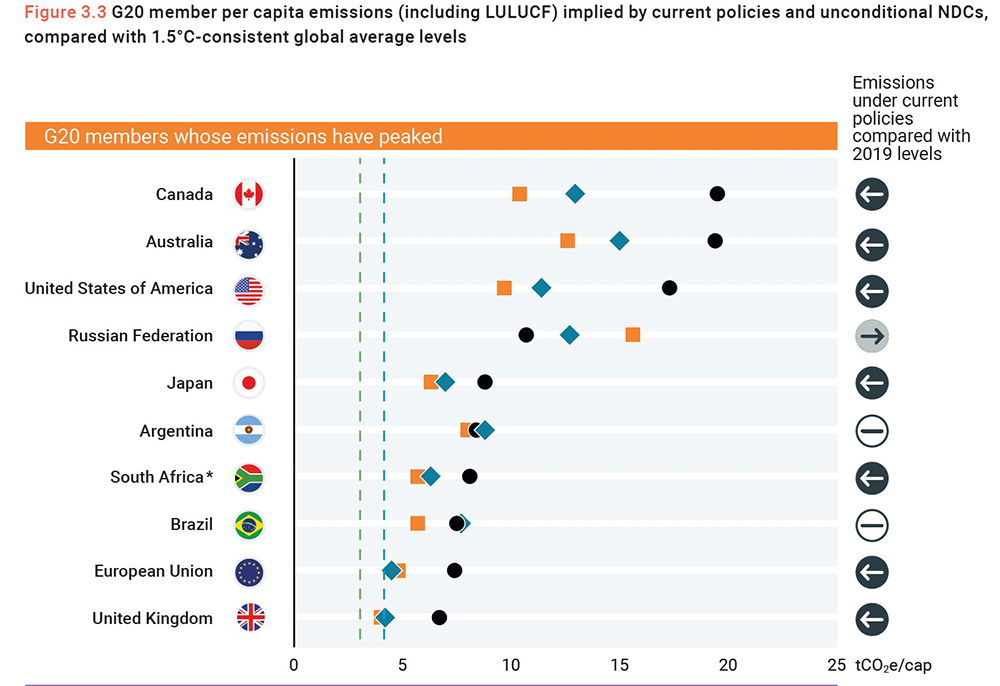Prime Minister Keir Starmer of Britain announced at COP29 a rigorous set of plans and actions for leading the world as a destination for companies investing in the clean energy transition. He observed that the U.K. is pledging to keep the 1.5-degree objective within reach, with an 81% reduction in emissions by 2035; onshore wind is now permitted; no new oil and gas licenses will be allowed for the North Sea; the U.K. closed its last coal power plant in September, becoming the first G7 economy to do so. The UK government will provide £11.5 billion in international climate finance between April 2021 and March 20261.
The UK’s first Labour budget in 14 years shows a positive direction on climate action. Capital budgets will be set for five years and extended at every two-year spending review, promising greater policy certainty and clarity, including the government’s plan to invest £100 billion over the next five years and more than £35 billion in economic infrastructure in 2025-20262.
Great Britain has already achieved the lowest level of per capita carbon dioxide emissions among the G20 nations3.
 Source: Emissions Gap Report 2024.
Source: Emissions Gap Report 2024.
In a study of 1500 climate policies implemented in the last twenty years across 41 countries, the UK had one of the 63 successful policy interventions producing large reductions in carbon emissions4.
In a meta-analysis of G20 members’ net zero pledges under the Paris Agreement, Great Britain emerges as providing the highest-level information on anticipated pathways or measures for achieving net-zero targets. The process covers all sectors, transparent information on carbon removal, published plans, a review process, and annual reporting5.
The Prime Minister told delegates at COP29 that the U.K. would reduce greenhouse gases by 68 percent in 2030 and 81 percent in 2035 compared to the level in 1990.
Electric grid reform and expansion will be prioritized. A comprehensive overhaul is essential to renewable energy growth and job creation. Many countries have grid networks that are far from optimum: designed for fossil fuels, encumbered by bureaucratic obstacles and pricing issues.
The Climate Change Committee of Parliament in the 2024 Progress Report found that the “new government will have to act fast to hit the country’s commitments.” It set out ten priority actions for the next year with a focus on making electricity cheaper, reversing policy rollbacks of the previous administration, accelerating decarbonization, and strengthening adaptation.
These ten priority actions are very important because many of them are found in the emerging plans of other nations.
Make electricity cheaper. Removing policy costs from electricity prices will support industrial electrification and support lower running costs of heat pumps, etc.
Reverse recent policy rollbacks.
Remove planning barriers for heat pumps, electric vehicle charge points, and onshore wind.
Introduce a comprehensive program for decarbonization of public sector buildings.
Effectively design and implement the upcoming renewable Contracts for Difference auctions so they can deliver at least 50 gigawatts of onshore wind by 2030.
Accelerate electrification of industrial heat. Strengthen the UK emissions trading scheme (ETS) to ensure that its price is sufficient to incentivise decarbonisation and that support is available for a rapid transition to electric heat across much of the industry.
Increase tree planting and peatland restoration.
Finalize business models for large-scale deployment of engineered removals of carbon dioxide.
Publish a strategy to train people and give them the skills needed in green industries.
Strengthen the third national adaptation plan (NAP3). The Climate Change Committee advocates for clearer objectives and targets. Climate adaptation must become a fundamental part of policymaking in all government departments and should be integrated into other national policy objectives5.
In 2024 the Labour Government also announced five climate bills:
The Great British Energy Bill to set up a publicly owned clean power company for accelerating investment in renewable energy.
The National Wealth Fund Bill to establish the national wealth fund, which will be capitalized with an additional £7.3 billion and make transformative investments across every part of the country.
The Planning and Infrastructure Bill to reform the planning system intended to speed up house building and delivery of major infrastructure projects.
The Crown Estate Bill to remove restrictions and allow for easier investment in public infrastructure.
The Sustainable Aviation Fuel Bill to create a revenue certainty mechanism for building sustainable aviation fuel manufacturing plants in the UK.
Apart from the specific requirements of the British situation, a general approach is emerging that may benefit other countries. Based on my experience, the essential aspects are:
Grid reform.
Accelerated financial support for investments in multiple sectors.
Combined programs, including pricing policies, at the sector level.
Transparency in planning and annual reporting of results.
A feedback process that allows for experimentation and learning.
The British experience is producing some novelties in the greening of their grid. When the wind blows and turbines produce more electricity, nearby households may have their phones light up with a notification of substantial (50%) price discounts. They may plug in their electric car, start a load of laundry, or make a special energy-intensive Christmas fruit cake, typical of West Yorkshire. This means building many more wind and solar projects as well as batteries and transmission lines, while offering Britons the possibility of cheaper electricity. Octopus Energy, the country’s largest electricity supplier, wants to demonstrate that wind electricity is cheaper, but only when you use it when it's windy. Another approach used by Ripple Energy, a London startup, encourages people to buy part of a wind turbine in exchange for a discounted energy bill.
In Northern London, a developer collaborates with Octopus to sell homes that run entirely on electricity. The occupants get free electricity for light and heat for five years! These houses usually generate more electricity than they use, storing the surplus in batteries, which Octopus can sell to the grid when demand and prices are high. To date, there are only dozens of low-billed homes, but Octopus plans to have 100,000 by 2030 through partnerships with builders. Owners will get 10 years of free electricity6.
Naturally, there are many obstacles to the energy transition. Not everyone likes solar installations next door. Thus, there is great importance in implementing local projects, winning the community over to the low cost of solar. The same goes for heat pumps, substituting traditional boilers and providing air conditioning for the hotter weather. According to Vicky Dunn of Grimsby, the strength of these local projects is “to show what's possible, giving people something practical to do with the threat of climate change, instead of worrying or moaning”6.
After decades of denial, delays, and self-serving disrespect for our future generations and our planet, it is heartening to see a developed nation that dares to take its responsibility. Others should follow.
References
1 Starmer, K. (2024, November 12). Prime Minister’s national statement at COP29. GOV.UK.
2 Institutional Investors Group on Climate Change (IIGCC). (2024, November). UK Autumn Budget 2024: Labour climate action.
3 United Nations Environment Programme (UNEP). (2024). Emissions Gap Report 2024.
4 Stechemesser, A., Koch, N., Mark, E., Dilger, E., Klösel, P., Menicacci, L., Nachtigall, D., Pretis, F., Ritter, N., Schwarz, M., Vossen, H., & Wenzel, A.(2024). Climate policies that achieved major emission reductions: Global evidence from two decades. Science.
5 Parliamentary Research Service. (2024). CBP-9888: United Kingdom Government Debt: Overview and Trends. House of Commons Library.
6 Winkler, J. (2024, October 28). Free electricity in Britain? A power pricing experiment offers discounts for using energy when wind turbines are generating. The New York Times.














